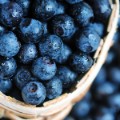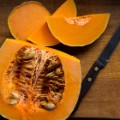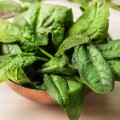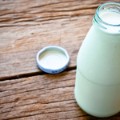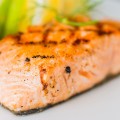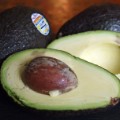Story highlights
- Of 20 women studied, half were fed, half were not
- Those who had eaten had an intense reaction to romantic images
- More research involving a larger sample and a wider range of ages needs to be done
(CNN)If you really want to get lucky in love, forget about taking her to a movie or a bar; you may be better off taking her out for dinner first.
That's what new research -- the first of its kind -- suggests from scientists who worked with Drexel University. The study recently ran in the journal Appetite.
This pilot study of a small number of college-age women, who are not considered over or underweight, found that their brains responded better to romantic cues if they'd eaten first.
The scientists discovered this by accident, according to senior author Michael Lowe, a professor in Drexel's department of psychology. They had been studying women to see if habitual dieters or women who ate normally responded differently to photos of tempting foods such as chocolate cake. To contrast with those images, the 20 women were also shown photos of romance. The pictures showed couples who held hands and walked along the beach, or couples who were having a candlelit dinner or were snuggling. Using an MRI, the scientists found the women who were fed before the test had a much more dramatic response to the romance photos than the women who fasted.
The MRI showed more activity in the reward center of the brain for the women who were full. Other regions that responded more intensely included the area known for visual processing, for facial perception and for goal-directed behavior. The women who fasted did not respond as much.
"This may just reflect that our attention is more grabbed or drawn to something when we are nutritionally satisfied," Lowe said. Or it could also mean the women who had eaten may have been more primed or sensitized to seek rewards beyond merely food. This could also suggest there may be a connection between food and sex in a woman's brain. "We don't talk about it much in the paper, but typically when you are presented with rewarding stimulus of any kind it creates an orientation to the award and some arousal because we are anticipating the reward," Lowe said.
When it came to the images of romance, this was not the response researchers were expecting. "Sometimes the most interesting findings are the ones we weren't looking for," Lowe said. The team did find the other results they were looking for: They learned that habitual dieters did respond much more strongly to photos of tempting food than those who ate regularly. The team published those results in the journal Obesity last year.
While the research about romance is small and will need to be tested in a larger group, perhaps one that would include women of a variety of ages and may include men, it does seem to build on earlier studies that suggest couples who are hungry often report being unreasonably angry with each other until they are fed. A 2014 PNAS study involved couples who were given pins to stick in voodoo dolls depending on how angry they were with their spouses. At the end of the 21-day observation period they were also asked to compete with their spouse in a game. The couples were told the winner got to blast the loser with a loud, obnoxious noise (in reality the partner did not hear the noise). The researchers measured the couples' blood sugar levels during the 21 days. In the end, the test found that married couples were more aggressive toward each other when their blood sugar level was low.
Other earlier studies have shown that women who had fewer sad moods or were more emotionally satisfied in their relationship have more desire than those who do not. "Mood and an overall sense of health and well-being is key for women," Dr. John Randolph a professor of obstetrics at the University of Michigan Health System said in relation to a study of women's sexual desire that ran last year in the Journal of Clinical Endocrinology and Metabolism.
Perhaps we can one day add a woman's sense of being full to the list of what makes her ready for love, too.












